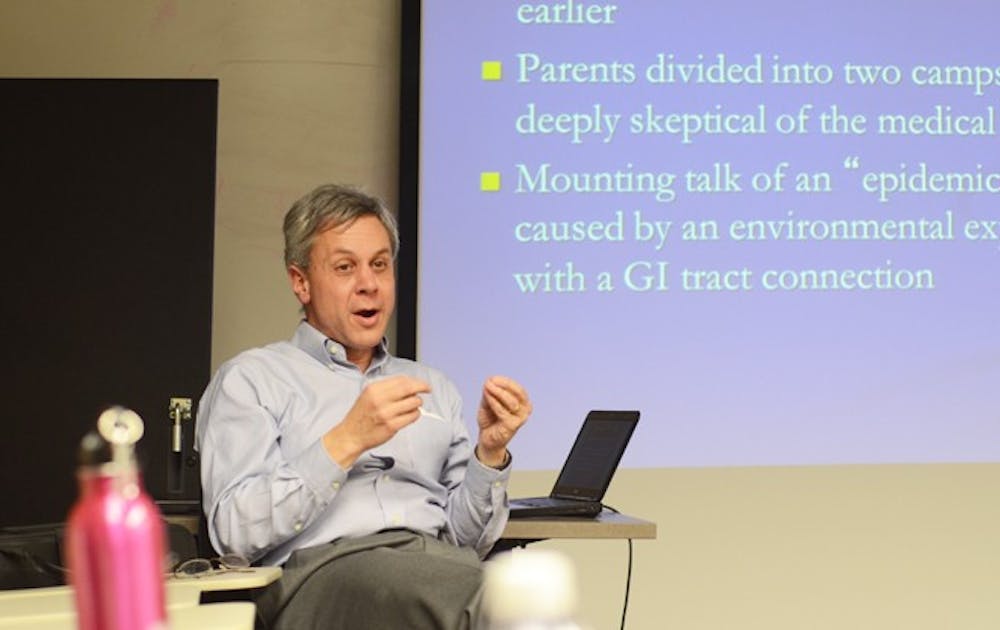The complex history and dramatic increase in autism diagnoses has fueled controversies in both the scientific community and the public surrounding the disorder’s definition, causes and treatments, said medical history expert Dr. Jeffrey Baker.
The Duke chapter of Autism Speaks U hosted a discussion Monday titled “The Perfect Storm: The History of the Vaccine-Autism Controversy,” led by Baker, director of the program in the history of medicine, in which a small group of students discussed the history of the disorder with Baker. The history of autism branched into two realms, Baker said—one within the scientific community and one in the public sphere—which hold different perspectives about its development since its discovery in the 1940s. The past 70 years have led to a wide canon of theories that attempt to explain the cause of autism, most of which have been disproven, he noted.
Both the complicated history of autism and the unanswered question of causation, Baker explained, contribute to an incongruity in the public and scientific explanations of autism. Many influential organizations such as Defeat Autism Now are championed by leaders who have been directly affected by the disorder, he said. This can create a less objective public interpretation, which allows false explanations, such as the use of mercury in vaccines administered to infants, to circulate within the community.
“Do vaccines cause autism? It’s so easy to think that they do—some are given at one year of life—and most parents believe that their child is normal at one year of life. But are they really normal at that point?” asked Baker, who said he is not at all convinced that mercury could be a cause. “You get a sense that it’s just a happy field that everyone gets together and agrees with everything, but there are quite a few controversies.”
The over 500 percent increase in autism prevalence since the 1970s in the United States has fueled the debate, he said, where the scientific community has argued that this increase is due to heightened awareness and a broader definition of autism, whereas the public is convinced that there are external causes to blame.
“We like to talk about how diseases may be socially constructed,” he said. “There is a sense that diseases have to be defined, and autism isn’t based on specific laboratory tests, so it has to be restricted to a definition.”
The broad scope of autism’s definition has lead to many opposing schools of thought concerning how it is treated, caused and whether or not it is an epidemic, said freshman Brittany Klein, a member of Autism Speaks U.
“I agree with Dr. Baker that the broadening of the definition is the major cause of the rise, but I’m not opposed to the idea that there might be other environmental causes,” Klein said.
Senior Kaiti Dunlap, president of Duke’s chapter of Autism Speaks U, hopes to help the cause by broadening fundraising, awareness and general involvement within the Duke and Durham community.
“We wanted to get more people interested in autism,” Dunlap said. “So we’re grateful to people who want to come speak.”
The answer to the autism problem is still unclear, and there is a lot of research that has to be done in order to solve what has become a growing epidemic in the modern world, Baker added.
“I’m not totally sure what I think,” he said. “I truly believe at least half is driven by expanded definition and surveillance, but I’m not sure that there hasn’t been a real reason for the serious rise in prevalence.”
Get The Chronicle straight to your inbox
Signup for our weekly newsletter. Cancel at any time.

